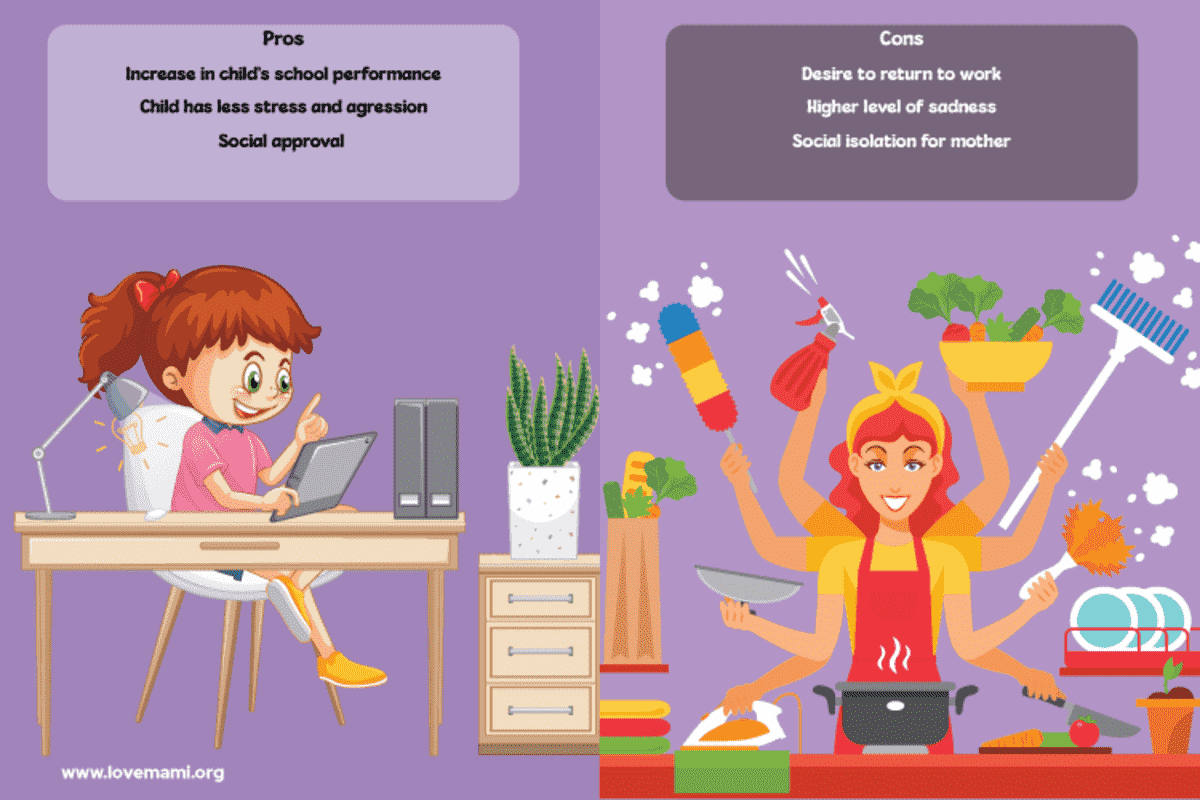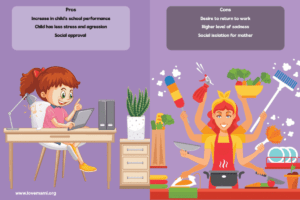Parenting a parent is a full-time job, and stay-at-home moms frequently face extra difficulties in this capacity. A recent exchange on a parenting blog highlighted the frustrations of a stay-at-home mom who thought her spouse had invalidated her. She wondered if she was doing enough for him, even though she cared for their two kids. A discussion over the division of household duties, when one parent remains at home, was sparked by this conversation.
Along with taking care of the kids, many SAHMs find themselves handling a never-ending list of domestic chores. A SAHM’s responsibilities extend far beyond “watching the kids.” They include dinner preparation, laundry, and cleaning. SAHMs frequently don’t get the credit or assistance they deserve despite the demands of their job.
Joint Responsibility: Striking a Balance
Several Internet users commented on the thread, highlighting the fact that being a SAHM is a tough job that involves more than just “watching the kids.” The general majority was in favor of a shared responsibility model, in which parents share equal duty for taking care of the home and the children when the other partner is at home.
Pros of Stay-at-Home Moms:
Enhanced engagement in the daily lives of the child: Being a SAHM offers several advantages, one of which is the chance to actively participate in every aspect of your child’s daily schedule. You never miss a moment, from their first steps to their first words.
Increased authority over the influences and upbringing of children: You have a greater opportunity to personally influence your child’s values, beliefs, and behavior as a SAHM. You can make sure they grow up in a secure, supportive environment and are exposed to healthy influences.
Potential advantages for kids’ academic success, such as better school performance: According to research, kids who have a stay-at-home parent typically do better academically. This might be the result of additional care, encouragement, and direction.
Having positive feelings regarding the decision to raise children at home: Being there for their children brings great happiness and fulfillment to many SAHMs. It can be immensely satisfying to know that you are improving their lives.
Flexibility in scheduling and household chores: Staying at home gives you greater freedom to arrange your time and perform errands and household chores. Without the limitations of a regular job schedule, you can plan appointments, do errands, and take care of household chores.
Bonding with kids: Being a SAHM offers lots of chances to spend quality time with your kids, which can improve your relationship and help them grow emotionally.
Cut daycare costs: You can save money on daycare by remaining at home, which can be a big financial relief for many families.
Reasons and Consequences
Cons of Stay-at-Home Moms:
Want to return to work and possible effects on career track: Many SAHMs say they would like to return to work at some time, but they are concerned about how their job breakup may affect their future.
Some parents who choose to remain at home have reported feeling more depressed, angry, and sadness than usual. For some SAHMs, the loneliness and routine of spending their days at home can be harmful to their mental health.
sentiments of undervaluation and social isolation: SAHMs could have sentiments of undervaluation for their contributions to the family and social isolation from adult relationships.
Financial pressure and income loss for the family: Resigning from a job can be difficult financially, particularly if the family is dependent on two sources of income.
Physical and mental health: For some SAHMs, the responsibilities of raising small children can cause physical and mental health issues.
Lack of professional fulfillment: Having a career outside the home might provide a sense of success and fulfillment that some SAHMs may not get.


















